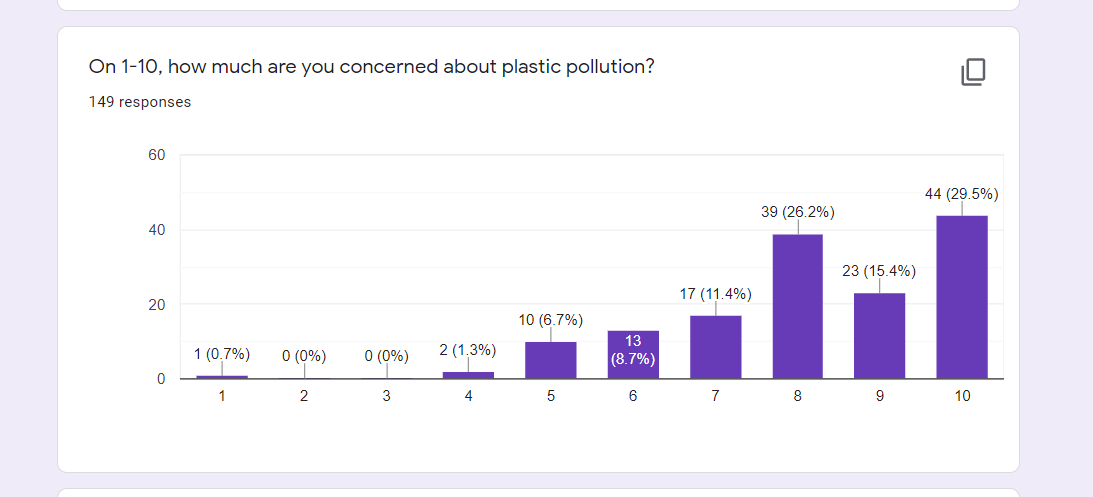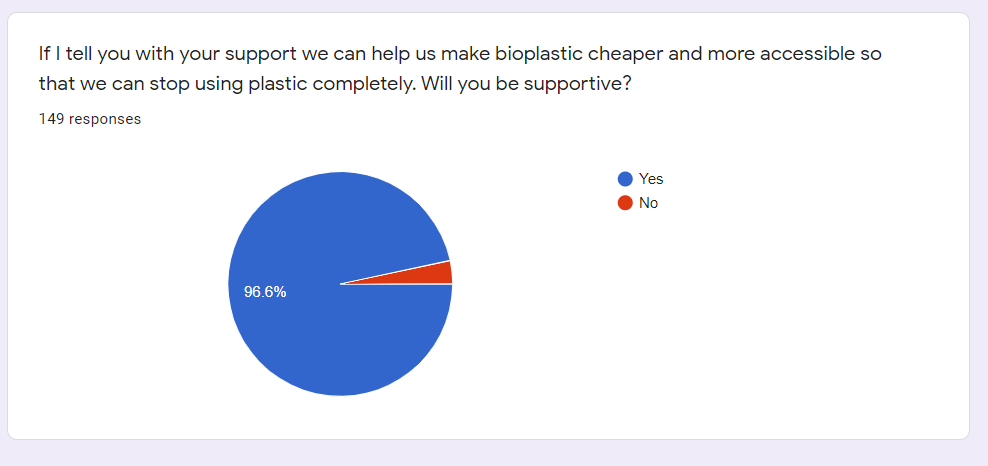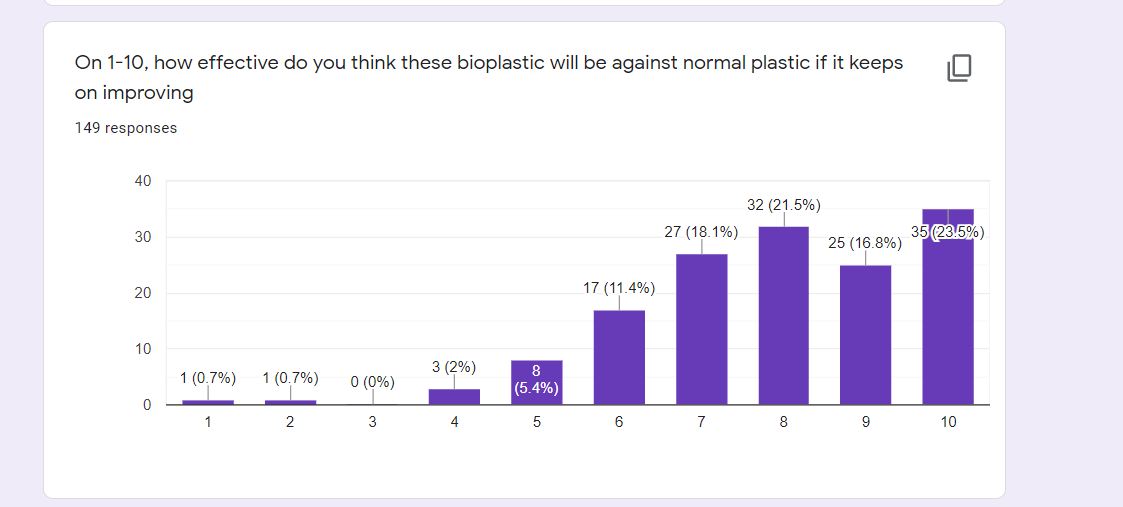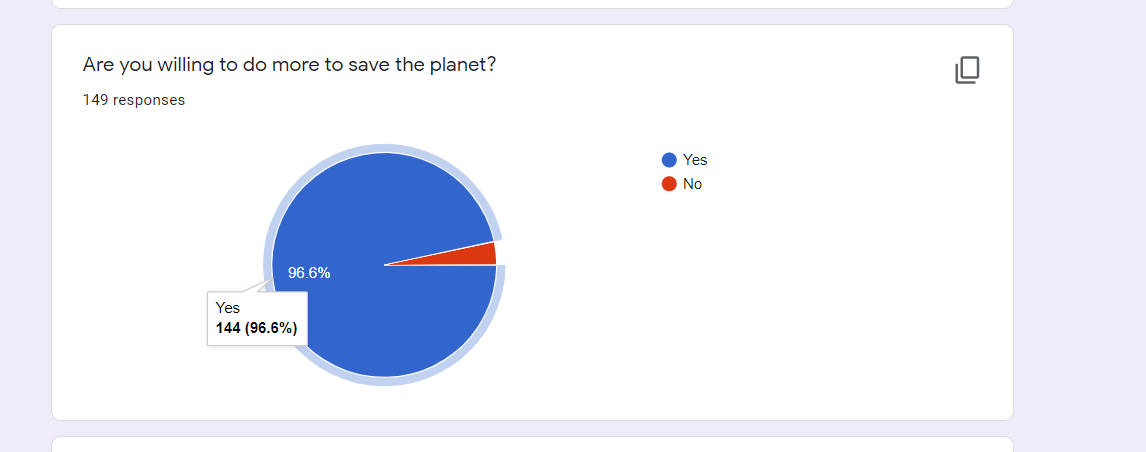Written Wider Context and Research...
- Ahseek Naseeb

- Oct 13, 2020
- 5 min read
So I have quite a lot that I haven't documented from my project because of how busy I've been with all the other projects, so yeah this post will be pretty long
WIDER CONTEX
The world knows how plastic pollutes the environment and measures are already being taken. We have developed biodegradable and compostable plastic, a plastic that is made from renewable biomaterials like plants, seaweed or even bacteria. Bioplastic can degrade on its own with the help of weathering and therefore it is an effective way to stop plastic pollution (Tan, 2020). There are already a lot of bioplastic out there and researchers keeps on making new ones using materials like seashells (Hitti, 2019), orange peel (Taccola, 2016), olive pits (Barrett, 2019) and mushrooms (Mushrooms ... The New Plastic?, 2014) to name a few, and all of them have great potentials to replace plastic. They can be made into sheets, they are suitable for industrial processes like injection moulding, they can be printed on and can be made into different colours and different hardness and lastly all of them are made up from wastes material which makes that they will not be too costly compared to normal plastic, in fact some of them could even compete against plastic. But why is it that they have not already replaced plastic? They have the same properties, they can degrade on their own and on top of that they have a lot of nutrients as they are made from organic products, therefore when they degrade, they provide minerals for our planet to stay green. Based on Vivian Tan’s talk, it has a lot to do with how we live and our incentives as humans to protect the planet, the rest of the solutions are already out there and is just waiting for actions to be taken (Tan, 2020). A lot of people do not know about bioplastic and how good it actually is, if we tell people about it, if we tell them it’s potentials to replace plastic, will people accept bioplastic, will they be willing to stop using plastic completely, will we be able to live in a world without plastic?
Bibliography
Barrett, A., 2019. Bioplastics Made From Olive Pits. [online] Bioplastics News. Available at: https://bioplasticsnews.com/2019/02/03/bioplastics-made-from-olive-pits/ [Accessed 23 September 2020].
Hitti, N., 2019. Shellworks Turns Discarded Lobster Shells Into Recyclable Bioplastic Objects. [online] Dezeen. Available at: https://www.dezeen.com/2019/02/22/shellworks-bioplastic-lobster-shell-design/ [Accessed 23 September 2020].
Taccola, G., 2016. Alchimia 2016 | Works | Ginevra Taccola. [online] Ginevrataccola.com. Available at: http://www.ginevrataccola.com/works/alchimia-2016/ [Accessed 23 September 2020].
Tan, V., 2020. Are Bio-Plastics A Sustainable Solution? | Vivian Tan | Tedxabbotsford. [video] Available at: https://www.youtube.com/watch?v=Kjb7AlYOSgo [Accessed 23 September 2020].
University of San Francisco. 2014. Mushrooms ... The New Plastic?. [online] Available at: https://www.usfca.edu/news/mushrooms-the-new-plastic [Accessed 23 September 2020].
SURVEY
So I already had my survey question, I just had to elaborate on them a little and make a proper google form survey, here it is...
And after that, well I became a spammer on facebook. I joined a lot of group, spam comments and get banned from some too haha. I also got help from Dhanesha which was great and fun. But yeah I gathered 149 people which I thought I needed more but then my lecturer told me it was enough. So I closed the survey and did an analysis of the data.
Survey results
Here are screen snipes of the survey results
Overall analysis
Every person that replied cares for the environment
Most of them bring bags to supermarket and throw all their trash in the bin
Most of them recycle
Even though they don’t find it convenient they don’t really have a problem with doing these little things to save the planet
A lot of them did not knew that only 9% of plastic is recycled
Most of them think that we can live a life without plastic, a lot said because our grandparents never needed it so that’s why it’s possible
A lot of people heard about bio plastic but do not know much about it. Some of them know that they are underfunded
Most of the people believed in bioplastic and will support it
In overall, most people think pretty much the same no matter what country. The slight difference maybe could come from education level.
Further analysis
People in rural areas are less concerned
Most people who recycle are from urban areas
People with low and average pay check are concerned about their budget when it comes to buy bioplastic
People that are unemployed has said that it will not be convenient to live without plastic
Common answers
As long as it fits my budget
We lived well without plastic before, why cant we now
Educate/sensitize people
Create new laws
Some of the most interesting/realistic answers I got
Conventional plastic is cheaper because the extraction of hydrocarbons for energy means the scale makes it cheap. It will only get less and less cheap when hydrocarbons are no longer important for energy. Market instruments are required to incentivise switching to bioplastics.
It sounds like a really great alternative. However, I believe it wont be this decade that it will replace the non biodegrable plastics - the latter have monopolized the market for so long that people will be resistant to the change - and really it all comes down to the big companies, are they willing to go with this new safer for the planet plastic? Are they as easy to make/get our hands on? Are they as easy to work with as the non biodegrable plastics? And again, many many people would not be able to afford this new plastic, no matter how good of an influence it has on the environment, the economical side of it must be considered. If it's the same price or even cheaper than the non biodegradable plastic, i am sure people will be more welcoming towards it. But if not, only those from middle working class (perhaps) and higher class will purchase it. Also, companies could suffer from immense loss if the plastic were to be of a higher price, which would discourage an uncountable number of companies.
In the Netherlands they will now charge you a little extra on most plastic bottles. When you bring them back to the supermarket you get that money back. I think that's a great initiative.
Encourage people to recycle plastic. In Mauritius, people pay an extra fee when buying drinks if they do not return a glass bottle first. In the same way an extra fee should be added on water bottle to encourage people to recycle their plastic bottle.
Find that plant/solution that eats plastic, that will completely oblirate plastic without causing any damage to the environment in the process. It will definitely be a much faster process go achieve this. It won't necessarily stop plastic pollution, cause people will always keep polluting, but it will destroy all of that pollution.
Personal experience of some practice that could help against plastic pollution
In Mauritian small restaurants, when you are close to the owner you can bring your own containers for food takeaways. Usually my relatives would do that when they are buying in bulk.
And another place in Mauritius you can bring your plastic bottles back to the supermarket and get some cash or voucher back. But it's only in 1 supermarket that they do that.
In Malaysia when I went to 'Bubble tea Street' there was this place called pin tea that had a banner saying that you can bring your own containers/ bottles for them to put the drink in it.
Other than that I have started with my observation but I still have to do some amendment and will update later. But so far in just 1 apartment, there is already so much plastic. and thinking about it replacing all plastics with bioplastic may not be such an easy task as there are thinks like water drainage pipes that bioplastic might not be suitable for yet.
After documenting my observation I still have to think of how I will present the data in an infographic.































Comments